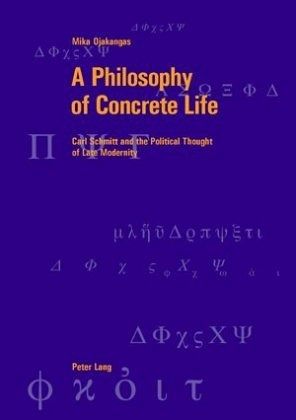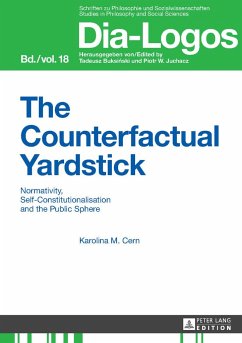
A Philosophy of Concrete Life
Carl Schmitt and the Political Thought of Late Modernity
Versandkostenfrei!
Versandfertig in 6-10 Tagen
76,95 €
inkl. MwSt.

PAYBACK Punkte
0 °P sammeln!
Carl Schmitt's work - consisting of polemical moves in immediate intellectual and political contexts - is not usually thought of as forming a recognizable system. A Philosophy of Concrete Life challenges this interpretation. In this book, the author demonstrates that there is indeed a common metaphysical core passing through Schmitt's work as a whole. On account of this metaphysical core, the author calls Schmitt's thought a "philosophy of the extreme", thus emphasizing its embeddedness in the late modern tradition of philosophical extremism from Kierkegaard to Foucault. Despite this strictly ...
Carl Schmitt's work - consisting of polemical moves in immediate intellectual and political contexts - is not usually thought of as forming a recognizable system. A Philosophy of Concrete Life challenges this interpretation. In this book, the author demonstrates that there is indeed a common metaphysical core passing through Schmitt's work as a whole. On account of this metaphysical core, the author calls Schmitt's thought a "philosophy of the extreme", thus emphasizing its embeddedness in the late modern tradition of philosophical extremism from Kierkegaard to Foucault. Despite this strictly philosophical objective, however, the book is also a lucid presentation of all of Schmitt's central ideas and concepts from the 1920's to the 1960's, offering a comprehensible introduction to the work of this controversial political thinker.












